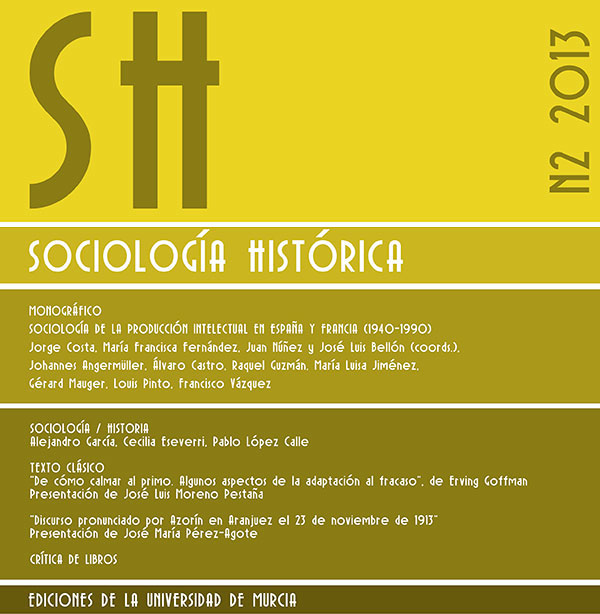A Reading of Heidegger in francoist Spain. The case of Manuel Sacristán
Abstract
With the victory of the national side in the Civil War, the Catholic-Thomist philosophy is institutionalized in Spain. This anti-modernistic philosophy stream reclaimed Heidegger as a deep and systematic thinker who was against the Orteguian philosophy, suspiciously rationalist and agnostic. Manuel Sacristán, a young Orteguian Falangist, who affiliates the Spanish Communist Party in 1956, would develop a doctoral thesis criticizing Heidegger between 1954 and 1958. This young man, who during the sixties would become a model for the Spanish left wing, considered the philosophy of the thinker from Messkirch as a direct attack to the rational thinking and criticized Heidegger’s gnoseologic principles and his etymologizing methodology in his thesis. The present article addresses this not only deep and interesting reading, but also little known nowadays, about the reception of Heidegger in Spain.Downloads
-
Abstract604
-
PDF (Español (España))335
Las obras que se publican en esta revista están sujetas a los siguientes términos:
1. El Servicio de Publicaciones de la Universidad de Murcia (la editorial) conserva los derechos patrimoniales (copyright) de las obras publicadas, y favorece y permite la reutilización de las mismas bajo la licencia de uso indicada en el punto 2.
2. Las obras se publican en la edición electrónica de la revista bajo una licencia Creative Commons Reconocimiento-NoComercial-SinObraDerivada 4.0 España (texto legal). Se pueden copiar, usar, difundir, transmitir y exponer públicamente, siempre que: i) se cite la autoría y la fuente original de su publicación (revista, editorial y URL de la obra); ii) no se usen para fines comerciales; iii) se mencione la existencia y especificaciones de esta licencia de uso.
3. Condiciones de auto-archivo. Se permite y se anima a los autores a difundir electrónicamente las versiones pre-print (versión antes de ser evaluada) y/o post-print (versión evaluada y aceptada para su publicación) de sus obras antes de su publicación, ya que favorece su circulación y difusión más temprana y con ello un posible aumento en su citación y alcance entre la comunidad académica. Color RoMEO: verde.










